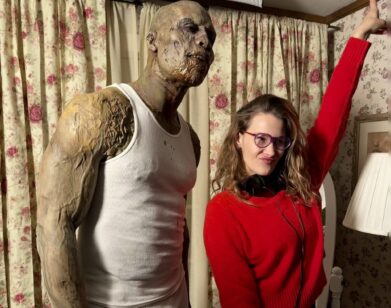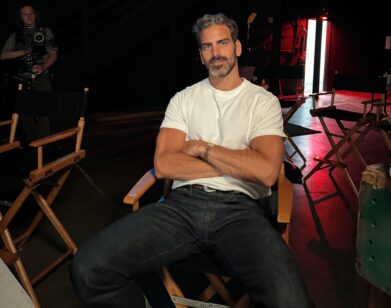Thursday Trailer Face-Off! Circo vs. Dumbstruck

Welcome to Thursday Trailer Face-Off, a feature in which we cast a critical eye on two similar upcoming film releases, pitting them against each other across a variety of categories to determine which is most deserving of your two hours. This week: Circo and Dumbstruck, two documentaries about people who could comfortably be described as “fringe performers.”
Cast
Both films are documentaries that follow a cast of approximately five main characters (in Circo, there might be a couple more—it was hard to tell how many kids are involved) with unusual performative careers. In Circo, it’s the Ponces, a family of Mexican circus performers whose livelihood, and hundred-year legacy, is threatened by a dearth of audiences and a surfeit of intra-familial fighting. Dumbstruck, on the other hand, follows five attendees of Kentucky’s annual Vent Haven Convention, where thousands of ventriloquism enthusiasts meet each year. We got a very strong sense for each of these people—a rare feat for a two-and-a-half-minute trailer—and it seems the director picked his subjects well. Circo seems, from the trailer at least, more like it’s about the idea of this family than about any of its individual members. Advantage: Dumbstruck
Locations
Dumbstruck seems to take place mainly in London Hall Convention Center—which has its own kooky, “real America” charm, to be sure, but it can’t compete with the gorgeous shots of Mexican countryside and big-tent feats on offer from Circo. As the producers of Carnivale and Water for Elephants will no doubt tell you, there’s something inherently both eerie and romantic about old-timey circuses (and circus folk). Advantage: Circo
Conflict
There’s some talk of familial drama in both trailers. “The most important thing should be your family. Your wife and your children,” says, clearly upset, in the Circo trailer. “That woman is like a devil. She’s evil,” a man we assume is her father-in-law says later. In Dumbstruck, “Puppet Minister” Wilma’s nephew admits on-camera, “Pretty much, the rest of the family wants nothing to do with us.” Kim, the former beauty queen, faces some criticism from her mom, who’d like her to “have kids, instead of her puppet children” (this last is said clear revulsion). Rough in both instances, but Circo wins the category on the strength of the high stakes involved when a family wracked with tension is forced to spend all their time in close quarters traveling together. Advantage: Circo
Director
Aaron Schock has a bare IMDb page: just Circo and a camera-op credit. Mark Goffman (Dumbstruck) has done a lot of TV writing and producing, for the likes of Studio 60 on the Sunset Strip, The West Wing, and Law and Order: SVU. This is his first full-length feature documentary, besides a video doc about Terry Fator, one of the ventriloquists highlighted in the film. We’ll give it to Goffman, who’s been active in the biz for the last ten years. Advantage: Dumbstruck
Credentials
Circo‘s trailer not-so-subtly includes a title card with all its film-festival affiliations: BFI London, Los Angeles, and Göteborg among them; it also won Best Documentary at the Hamptons fest. And it’s sprinkled with approving quotes: The Hollywood Reporter called it “visual poetry,” LA Weekly called it “triumphant,” the Huffington Post called it “a ravishing portrait,” etc. Dumbstruck got similar press from similar outlets (“A charmer of a feel-good doc,” per THR), but they’re flashed quickly on the screen, and there are no festival mentions. Circo‘s approach is braggy, yes, but when you’re a smallish documentary hoping to appeal to a certain snobbish populace, you can’t really afford to be modest. Advantage: Circo
The Verdict
All in all, Dumbstruck definitely looks like the more fun movie of the two—each of its characters seems game, weirdly lovable, and equipped with a great backstory. But it doesn’t look like it rises too far above that level, to get beyond zaniness and into topics that are a little bigger. The premise of Circo, in which a troubled family deals with the encroachment of modernity into their livelihood, is almost like an Arthur Miller story—so riddled with pathos that we, for one, can’t wait to see it.






